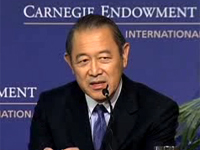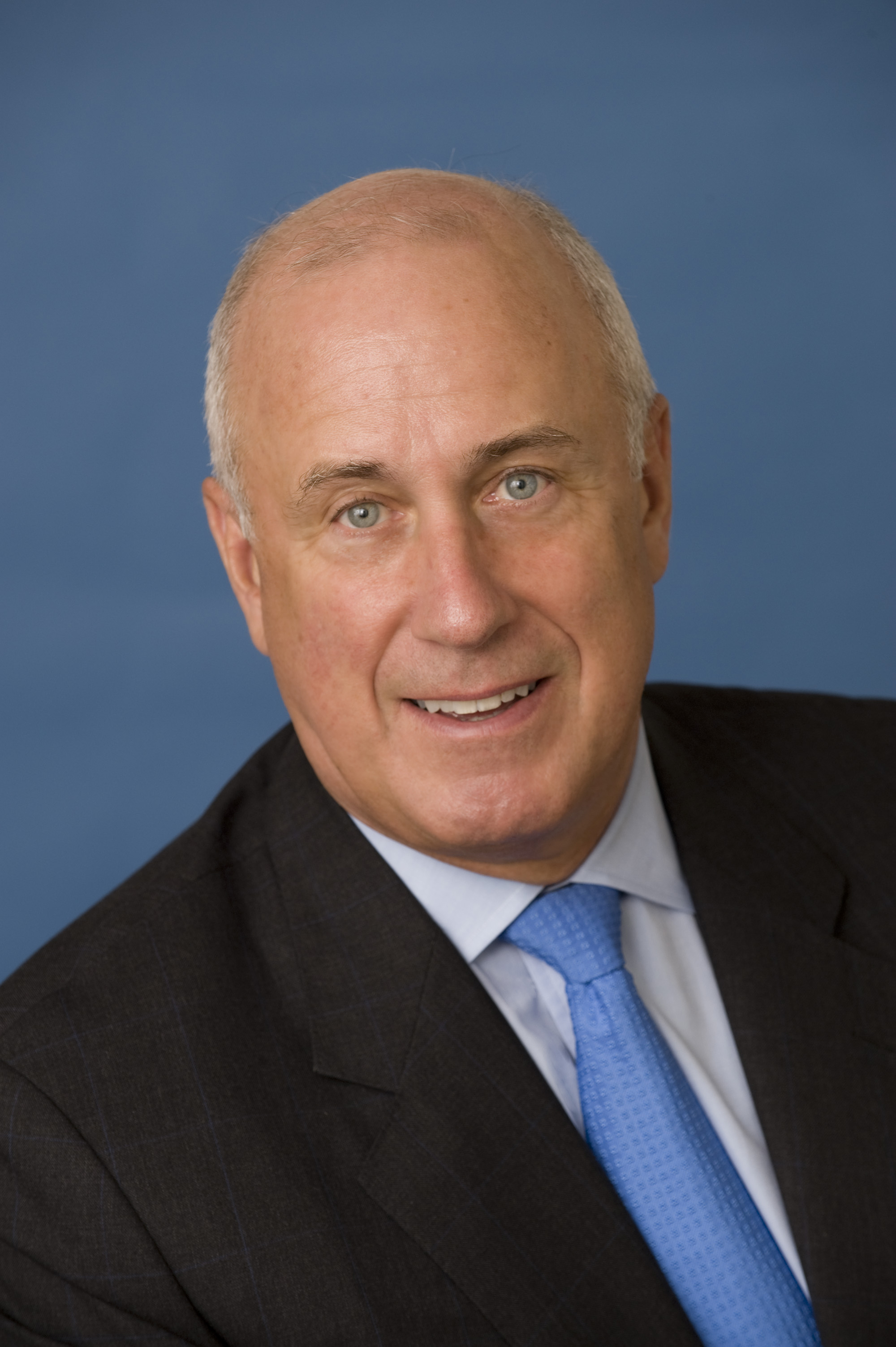{
"authors": [
"Douglas H. Paal",
"Ichiro Fujisaki"
],
"type": "event",
"centerAffiliationAll": "dc",
"centers": [
"Carnegie Endowment for International Peace"
],
"collections": [],
"englishNewsletterAll": "asia",
"nonEnglishNewsletterAll": "",
"primaryCenter": "Carnegie Endowment for International Peace",
"programAffiliation": "AP",
"programs": [
"Asia",
"Nuclear Policy",
"Sustainability, Climate, and Geopolitics"
],
"projects": [],
"regions": [
"North America",
"United States",
"East Asia",
"China",
"Japan",
"North Korea"
],
"topics": [
"Economy",
"Climate Change",
"Security",
"Military",
"Foreign Policy",
"Nuclear Policy",
"Nuclear Energy"
]
}
Asia in the Coming Years: A Japanese Perspective
Wed, December 17th, 2008
Washington, D.C.
Most people translate "the rise of Asia" as "the rise of China." Although China has captured the world's attention because of its impressive growth rates, its economy remains smaller than Japan's. Some analysts argue that the United States has engaged China at the expense of disengaging from Japan. To offer a perspective on Japan's role in Asia, the Japanese Ambassador to the United States, Ichiro Fujisaki, spoke at the Carnegie Endowment. Carnegie's Douglas Paal moderated the event.
Economics
Ambassador Fujisaki noted that Japan was the only country at the recent G20 Summit to extend a concrete emergency package -- to the tune of $100 billion -- to mitigate the global financial crisis. The ambassador cautioned countries not to introduce new protectionist measures or bolster existing ones in response to the crisis, and argued that developed countries should abide by their official development assistance (ODA) commitments.
Japan enjoys a strong economic position in Asia with both the highest share of trade with, and the highest share of FDI to, ASEAN countries (21.3% and 21%, respectively). Ambassador Fujisaki also stated that Japan ranks first in ODA to East Asian countries between 2002 and 2006. Japan has engaged in strategic economic dialogue with ASEAN since 1978. The ambassador stressed the importance of economic measures for promoting regional cooperation such as establishing a credit rating agency and allowing currency swapping.
Environmental Issues
The ambassador warned against a repeat of Kyoto, in which the United States and critical developing countries did not participate. Although Japan is willing to do more than developing countries such as India and China to mitigate climate change, progress should be evaluated against realistic CO2 emissions targets. He noted that Japan has been an exemplar of energy efficiency, accounting for 8% of world output but only 4.3% of carbon emissions in 2006. He also noted that the United States and European Union consume twice as much energy to produce one dollar of goods.
Weapons of Mass Destruction and Terrorism
Ambassador Fujisaki said that the world must strive to abolish nuclear weapons, and urged the United States to become a party to the Comprehensive Test Ban Treaty. He also stressed the importance of diplomacy, asserting that Russia and China would have to be engaged for any progress to be made in addressing Iran's nuclear ambitions. He noted the importance of the Six-Party Talks and agreed with President-elect Obama's recommendation to re-introduce sanctions on North Korea and suspend energy cooperation with it if it does not allow for a comprehensive inspection of its nuclear facilities.
Citing the danger of weapons of mass destruction in the hands of terrorist organizations, he shifted to a discussion of the global war on terrorism. The ambassador said that Afghanistan, Pakistan, and the Israeli-Palestinian conflict must be addressed in an integrated manner. Japan gave the second-largest amount of wartime assistance to Iraq between 2004 and 2006 and the third-largest amount of wartime assistance to Afghanistan between 2002 and 2006.
Japan's Place in Asia
Ambassador Fujisaki took exception with the comments of Helmut Schmidt, the former German Chancellor, who observed in 2005 that "Sadly, the Japanese nation doesn't have too many genuine friends in the world outside." He cited a 2008 opinion poll of people in six ASEAN countries -- Singapore, Thailand, Indonesia, Vietnam, the Philippines, and Malaysia -- showing that an average of 96% believe that their respective countries have "very friendly" or "somewhat friendly" relations with Japan. He also noted that Japan has been returned to the UN Security Council ten times in the past 30 years. Japan is deeply apologetic for the crimes that it committed during WWII.
LookingForward
Going forward, Japan wants to strengthen institutions such as ASEAN + 3, solidify relations with the United States, and increase its "human exchange" with other countries. He noted that Japan has no desire to exclude America even as it is attempting to bolster its alliances with emerging powers. A "silent majority" of Asians support America's military presence there on the continent. He concluded by urging the United States to play the role of stabilizer in the Asia-Pacific region.
Questions & Answers
The question-and-answer period addressed Japan's engagement with Central Asia and lingering tensions with Russia. On the latter point, Ambassador Fujisaki said that it behooves Russia to take steps to improve the bilateral relationship. He questioned the notion that the Six-Party Talks had significantly strengthened the Sino-Japanese relationship, saying that, at most, it produced some "side benefit." He also confessed that although the rise of China has benefited Japan economically, its military expansion -- approximately 15% annually over the past 20 years -- is cause for concern.
Carnegie does not take institutional positions on public policy issues; the views represented herein are those of the author(s) and do not necessarily reflect the views of Carnegie, its staff, or its trustees.
